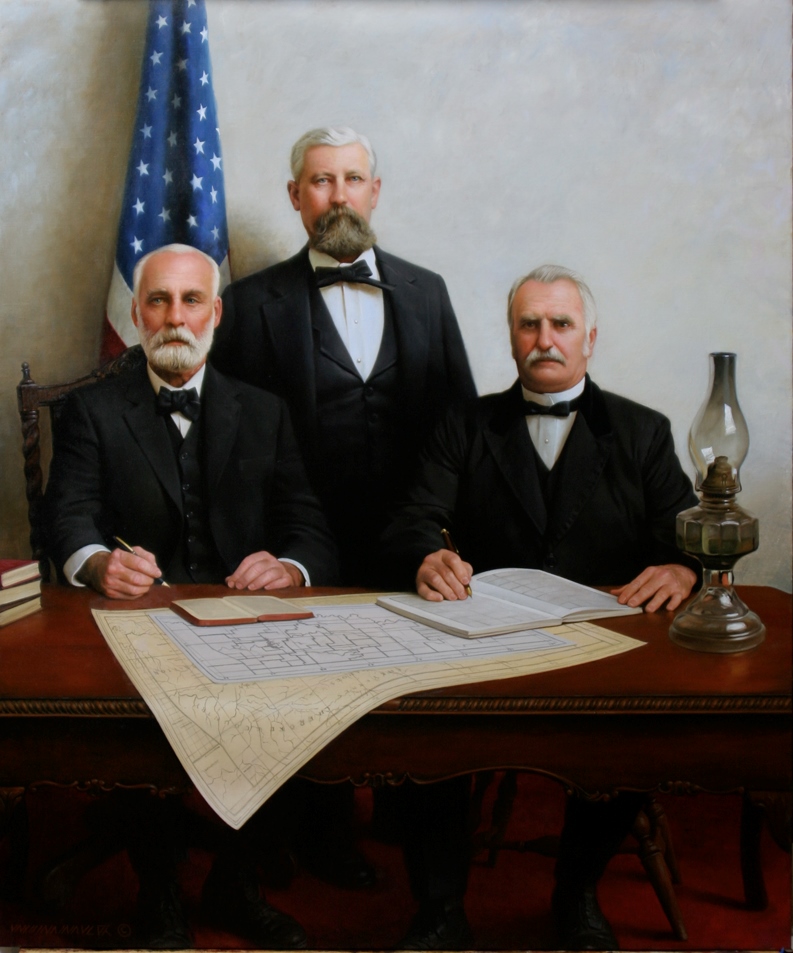Dawes Commission

Artist: Mike Wimmer
Sponsor: The Sisk Foundation
Dedication: December 31, 2008
Size: 50” x 60”
Type: Oil on Canvas
Location: 2nd Floor Senate Conference Room 230
The Dawes Commission, named for its first chairman Henry L. Dawes, was authorized under a rider to an Indian Office appropriation bill, March 3, 1893. Its purpose was to convince the Five Civilized Tribes to agree to cede tribal title of Indian lands, and adopt the policy of dividing tribal lands into individual allotments that was enacted for other tribes as the Dawes Act of 1887. In November 1893, President Grover Cleveland appointed Dawes as chairman, and Meridith H. Kidd and Archibald S. McKennon as members.
During this process, the Indian nations were stripped of their communally held national lands, which was divided into single lots and allotted to individual members of the nation. However, the Dawes Commission required that individuals claim membership in only one tribe, although many had more than one line of ancestry. Registration in the national registry known as the Dawes Rolls has come to be critical in issues of Indian citizenship and land claims.
Many people did not sign up on these rolls because they feared government persecution if their ethnicity was formally entered into the system. Furthermore, people often had mixed blood sharing several tribes. Nonetheless, according to the Dawes rules, a person who was 1/4 Cherokee and 1/4 Creek must choose one and register simply as '1/4 Cherokee', for instance. That would have forced a person to lose part of his or her inheritance and heritage. Although many Indian tribes did not consider strict 'blood' descent the only way to determine if a person was a member of a tribe, the Dawes commission did.
The result of the Dawes Commission was that Indian nations lost most of their national land. This cleared the way for white settlers looking for oil and farm land to come into the territories in areas such as Tulsa, buy up the small lots from the Indians, and set up towns. The Indians received money but lost their territory.
Images are copyright of The Oklahoma State Senate Historical Preservation Fund, Inc. and the artist. Please contact Matt Duehning at 405-524-0126 or Matt.Duehning@oksenate.gov for further copyright information.
 Oklahoma Senate
Oklahoma Senate

